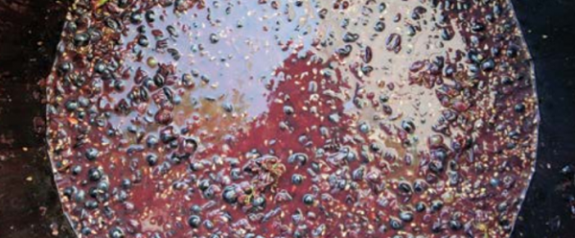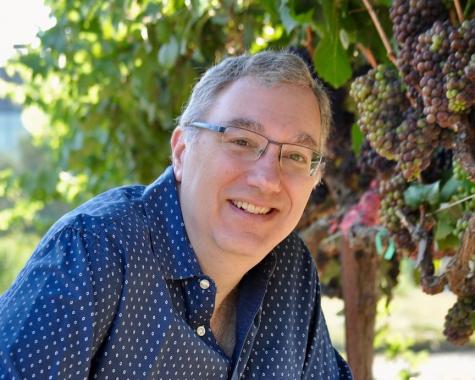
Presented by:
David E. Block
Ernest Gallo Endowed Chair in Viticulture and Enology
Professor and Marvin Sands Department Chair, Department of Viticulture and Enology
Professor, Department of Chemical Engineering
University of California
Producing a red wine involves a heterogeneous, three-phase system with complex fluid mechanics, heat transfer, mass transfer, and kinetics (both chemical and biological). Yet, the vast majority of winemakers globally, and most of wine consumers, have no idea, and prefer to describe the process in terms of the smell and taste of the fermenting or finished product. How much blackberry aroma is there in the nose? Does the Cabernet fill the mouth pleasantly or does it make your mouth pucker in an unpleasant manner? What if you could predict and explain these seemingly qualitative assessments using chemical and biochemical engineering principles? In this talk, I will give some examples of how we have done just this over the years, touching on explaining the kinetics of yeast fermentations using unstructured models, examining how computational fluid dynamics can be used to explain the tannin profile of a finished wine, and understanding the biological basis of yeast ethanol tolerance and yeast-derived sensory impact molecule production using genome-scale mathematical modeling, among other ideas. Ultimately, the goal of this work is not to replace the winemaker, but to augment the tools at their disposal to produce creative, high quality wines that delight the consumer.

David E. Block
University of California, Davis
Professor Block is Marvin Sands Department Chair in Viticulture and Enology at UC Davis and holds the Ernest Gallo Endowed Chair. Since joining UC Davis, he has conducted research on various topics, from fermentation optimization methods to metabolic engineering of yeast for improved wine production, as well as on single-plant resolution irrigation sensing and control. More recently, his research has focused on computational fluid dynamics models for red wine fermentations and process optimization for cultivated meat production. He played a key role in designing the UC Davis LEED Platinum-certified Teaching and Research Winery. Prof. Block has received the Distinguished Teaching Award from the UC Davis Academic Senate, the highest teaching award given for teaching alone on the UC Davis campus. Prior to joining UC Davis, he worked for Hoffmann-La Roche, Inc. working on biopharmaceuticals, both in process development and in manufacturing. Dr. Block, recently elected an AIChE Fellow, has been active in AIChE, serving as Director, Secretary, Vice Chair, Chair, and Past Chair of Division 15, Food, Pharmaceutical, and Bioengineering, as well as being a co-chair of the first two annual AIChE Food Innovation and Engineering (FOODIE) Conferences and a Topical Conference on Food Innovation and Engineering at the 2019 Annual Fall Meeting. David holds a B.S.E. from the University of Pennsylvania and a Ph.D. from the University of Minnesota, both in Chemical Engineering.
Please register for the meeting at one of the links below.
Note that registration for VLS meetings is required. Our meetings are still free to attend and open to all.
Primary (Live Presentation/Live Chat) Feb 24 at 9 PM EST / 1 AM GMT Register in advance for the Primary Meeting link_to_primary_meeting
Alternate 1 (Recorded Presentation/Live Chat) Feb 25 at 6 AM EST / 10 AM GMT Register in advance for the Alternate 1 Meeting:link_to_alternate_1_meeting
Alternate 2 (Recorded Presentation/Live Chat) Feb 25 at 1 PM EST / 5 PM GMT Register in advance for the Alternate 2 Meeting: link_to_alternate_2_meeting
After registering, you will receive a confirmation email containing instructions for joining the meeting, along with add-to-calendar links.
- Log in to post comments
